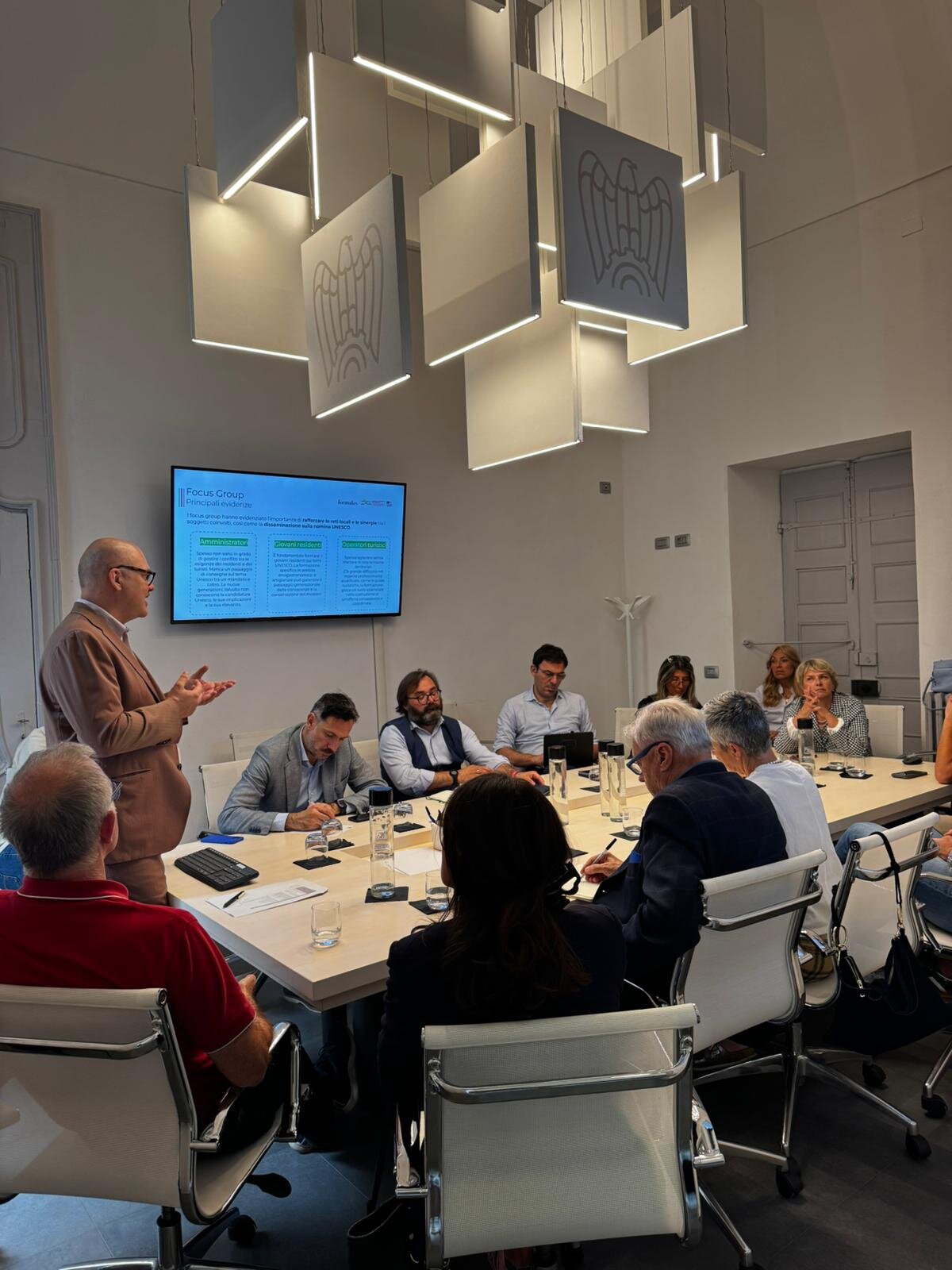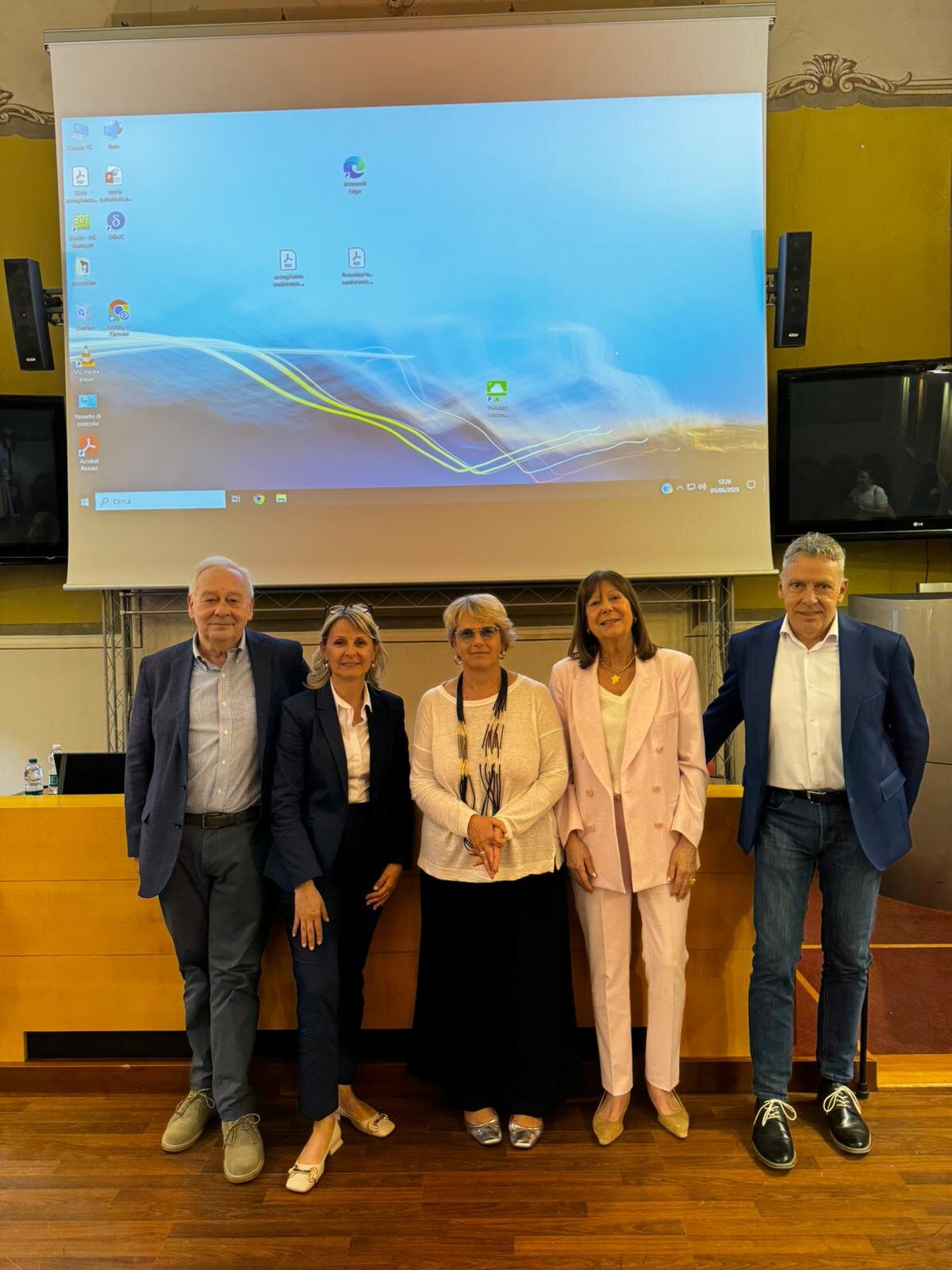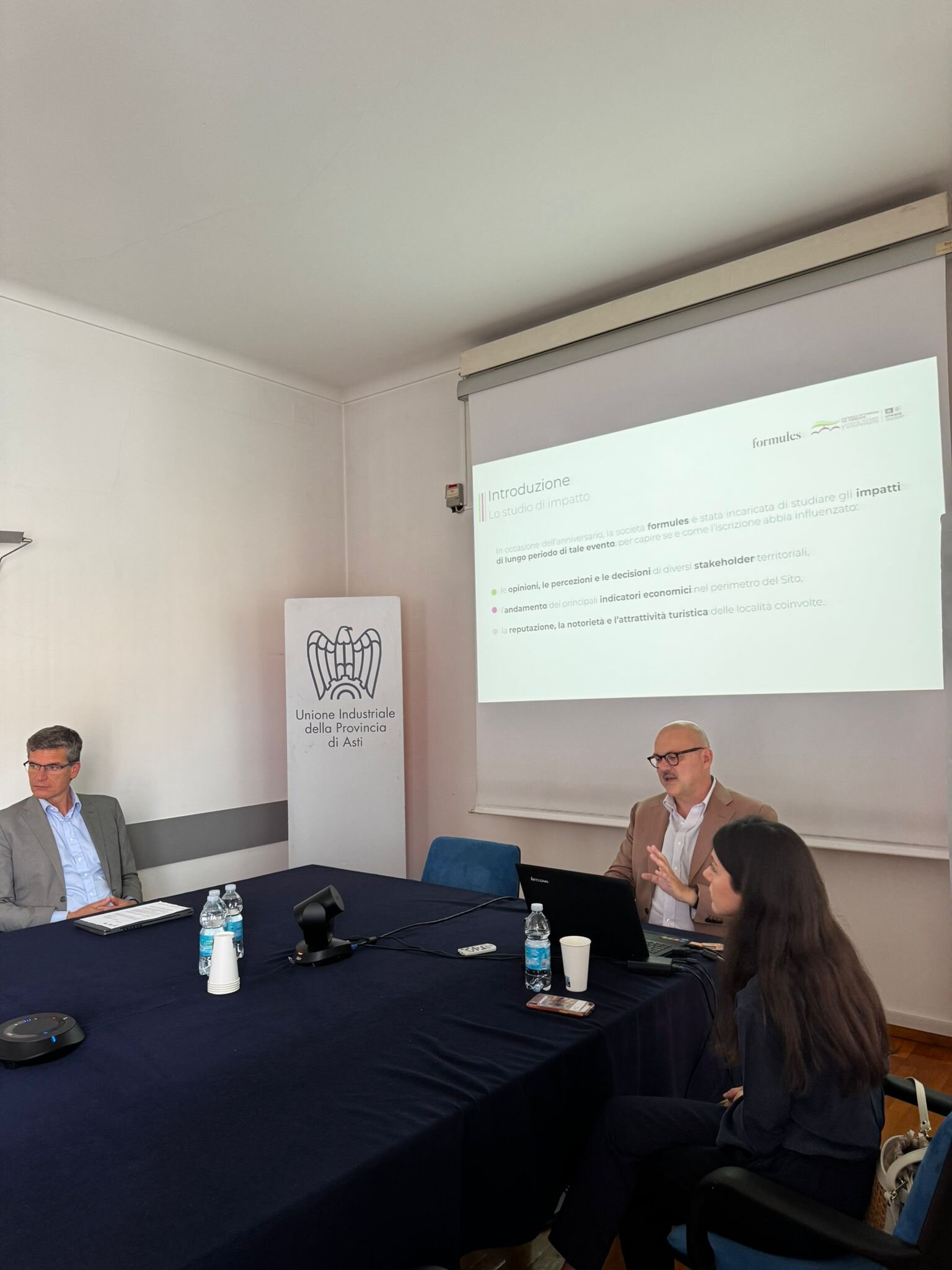Overall Economic Impact of Over €209 Million, with a €2.37 Return to the Territory for Every Euro Spent by Visitors; Media Coverage Valued at €32 Million Over 10 Years—116.3 Times Higher Than the Site Management’s Communication and PR Budget—and a Positive Boost to the Site’s National and International Reputation
Yet, 78% of respondents believe that the Site’s value is recognized and appreciated more by tourists than by residents.
These are the main results of the study on social, economic, and communication impacts ten years after the inscription of the Langhe-Roero and Monferrato Wine Landscapes on the UNESCO World Heritage List.
The study, conducted by Professor Guido Guerzoni, CEO of Formules—a consultancy working in the Cultural and Creative Industries sector—was presented on June 3 and 4 in Alba, Alessandria, and Asti.
What connects these figures? While the economic impact is significant, it is not sufficient on its own. It is by bridging the gap between material value and perceived value that protection is fostered, creating a fertile environment for young people’s growth. This is the space in which the UNESCO Wine Landscapes Association positions itself, taking on a responsible role in drafting the new five-year Management Plan.
The Guerzoni study analyzes the decade 2014–2024 and identifies three areas of impact: social, economic, and communication.
Economic Impact
Five key sectors were analyzed. In real estate, prices per square meter increased in the Langhe area, and transaction volumes grew across the territory. Tourism increased significantly in all core zones, with foreign visitors extending the average length of stay, while Italian travelers shortened theirs, favoring buffer zones over core areas. The accommodation sector is evolving, with growth in non-hotel structures—such as B&Bs, guesthouses, and tourist rentals—while traditional accommodation is declining. Employment increased in all core zones, and in agriculture, the Average Agricultural Values (VAM) rose for both vineyards and orchards in core and buffer areas of the Site.
Communication Impact
UNESCO has acted as a global amplifier, positioning the destination predominantly as a hub for refined gastronomic experiences.
Social Impact
A survey of local stakeholders revealed that UNESCO recognition had less impact on local identity and civic pride than expected. Strengthening local networks, synergies, and awareness—through dissemination aimed at administrators, tourism operators, and young residents—is essential to encourage retention and return of young people, transmit values, and counter rural depopulation caused by aging populations and rising prices.
In conclusion, analyzing these impacts provides the Association with a clear direction for action, paying particular attention to the ongoing evolution of the Site. Integrated strategies will be implemented, adapted to different areas, alongside dissemination activities to raise residents’ awareness and create a fertile environment for future generations. The Association will focus on this through training and institutional dialogue.
The study also highlighted that UNESCO recognition has had varying impacts depending on territorial variables, emphasizing the need to avoid a one-size-fits-all approach due to the Site’s vastness and diverse local behaviors.
Giovanna Quaglia, President of the Association for the Heritage of the Langhe-Roero and Monferrato Wine Landscapes, stated:
"In Alba, Alessandria, and Asti, we presented data on the social, economic, and communication impacts of UNESCO recognition. This research forms the basis of the new Management Plan, which we are developing in consultation with all local stakeholders. We are working together to ensure that the Langhe-Roero and Monferrato Wine Landscapes offer a future for the many young people who wish to live and work in the area."


